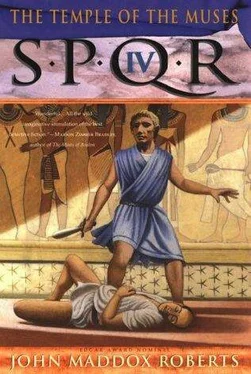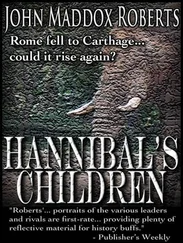John Roberts - Temple Of Muses
Здесь есть возможность читать онлайн «John Roberts - Temple Of Muses» весь текст электронной книги совершенно бесплатно (целиком полную версию без сокращений). В некоторых случаях можно слушать аудио, скачать через торрент в формате fb2 и присутствует краткое содержание. Жанр: Исторический детектив, на английском языке. Описание произведения, (предисловие) а так же отзывы посетителей доступны на портале библиотеки ЛибКат.
- Название:Temple Of Muses
- Автор:
- Жанр:
- Год:неизвестен
- ISBN:нет данных
- Рейтинг книги:5 / 5. Голосов: 1
-
Избранное:Добавить в избранное
- Отзывы:
-
Ваша оценка:
- 100
- 1
- 2
- 3
- 4
- 5
Temple Of Muses: краткое содержание, описание и аннотация
Предлагаем к чтению аннотацию, описание, краткое содержание или предисловие (зависит от того, что написал сам автор книги «Temple Of Muses»). Если вы не нашли необходимую информацию о книге — напишите в комментариях, мы постараемся отыскать её.
Temple Of Muses — читать онлайн бесплатно полную книгу (весь текст) целиком
Ниже представлен текст книги, разбитый по страницам. Система сохранения места последней прочитанной страницы, позволяет с удобством читать онлайн бесплатно книгу «Temple Of Muses», без необходимости каждый раз заново искать на чём Вы остановились. Поставьте закладку, и сможете в любой момент перейти на страницу, на которой закончили чтение.
Интервал:
Закладка:
By the time we made out preparations, Hermes was eager to go. He had spent hours in a near-panic. A true child of the metropolis, he was certain that open country was alive with wild, ravenous beasts hungering for his flesh. Every disturbance in the water was a crocodile coming ashore. Every quiet rustle in the bushes was a cobra. The louder rustles had to be lions. The scorpions that infested Alexandria probably represented a far greater danger to him, but they were commonplace. For some reason, most people fear being slain in an exotic manner. This is not peculiar to slaves.
With soot from the charred wood I streaked my face, arms and legs and directed Hermes to do the same. Then we daubed ourselves liberally with reddish clay from the bank. Egyptians divide their nation into the Red Land and the Black Land. The Red Land is Upper Egypt, to the south, but anywhere in Egypt away from the river and the delta is tolerably red. With our streaked limbs and faces and our dark red tunics, we would blend well with our surroundings in the fading light.
I picked up one of the short hunting spears and told Hermes to do likewise. He held it as if it were an asp that might bite him, but I thought it might give him a bit of confidence. We smeared the points with soot and clay to dampen any gleam, and we set off.
The first half-mile was easy, the reeds and brush so high that we could walk upright. There was a good deal of wildlife, and these were hard on my slave's nerves. We disturbed a family of ugly little pigs, and a pair of hyenas lurked back in the bush, watching us. A jackal cocked its huge ears in our direction. These last are rather attractive little beasts, somewhat like foxes.
"Hermes," I whispered at about the twentieth time he jumped, "the only really dangerous beasts are still well ahead of us. You'll know them because they will be carrying weapons." That quieted him.
With startling abruptness, we were out of the dense lakeside growth and at the edge of the cultivated land. At the limit of the tall grass there was a sloping earthwork dike, perhaps ten feet high. This presumably was a barrier against the occasional overflow of the lake. We went up this on hands and knees. At the crest I slowly raised my head until I could see over the top.
On the other side stretched cultivated fields, but these had been left fallow, sown with grass and made into pasture for at least the past year or two, from the look of them. A few head of the piebald, lyre-homed Egyptian cattle munched placidly on the rich forage. On the far side I could vaguely descry some buildings and odd shapes, including what appeared to be a high watch-tower. I wanted a closer look, but it was still too light to risk crossing the pasture, where we could easily be seen. A few hundred paces to the left I saw an orchard of date palms. I ducked back down below the crest of the dike, and Hermes did the same.
"We're not going to cross that field, are we?" he said.
"It's all full of cowshit and those animals have sharp horns."
"I didn't see any bulls," I told him. "But don't worry. We're going over to that date orchard and work our way closer through the trees." He nodded excitedly. He was naturally sneaky and underhanded, and all this appealed to him, except for the animals.
We walked the short distance and crossed the dike, descending its opposite slope into the cool dimness of the orchard. Like the fields, this, too, was neglected. Last season's fruit lay on the ground, food for pigs and baboons, while monkeys swarmed overhead, eagerly devouring this season's growth.
"Some of the finest farmland in the world here," I said, "and someone is letting it go to ruin. That's not like Egyptians." Indeed, the sight offended the remnants of my rustic Roman soul. Hermes was unmoved, but then, slaves do the actual work of farming, while we landowners practice a sort of agrarian nostalgia, fed by stories of our virtuous ancestors and pastoral poetry.
We progressed cautiously through the orchard, scanning the surroundings for observers. At one point a tribe of baboons screamed and hooted at us, pelting us with dung and dates. These were quite unlike the tame baboon-servants of the court, but rather were nasty, bad-tempered beasts like hairy dwarfs with long, befanged snouts.
"Do you think all that noise gave us away?" Hermes asked when we were past them.
"Baboons sound like that all the time. They scream at intruders and at each other. Everyone here will be used to it."
At the extremity of the orchard we could see the roofs of the buildings, but the grass had grown too high to see anything else, except for the exceedingly high tower, which gleamed a lurid red in the rays of the setting sun. Hermes pointed up at it.
"What's that?" he whispered.
"I think I know, but I want a closer look," I whispered back. "From here on, be very quiet and move very slowly. Watch me and do what I do." With that, I lay down on my belly and began to crawl slowly forward on knees and elbows, dragging my spear along the ground by my side. It was a painful means of progression, but there was no remedy for that. I elbowed my way through the grass, keeping a wary eye out for the snakes that are so abundant in Egypt. I was not as nervous as Hermes, but only a fool discounts the creatures. After all, when you slither on your belly like a reptile, you intrude on the domain of snakes, so to speak, and had best be ready to answer their challenges.
A few minutes of this crawling brought me to the edge of the high grass and I paused while Hermes crawled up beside me. Slowly, like actors in a mime, we parted the grass before our faces and looked into the field beyond.
Surrounded by large farm buildings of the usual Egyptian mud-brick architecture was a broad field of hard-packed dirt, rather like a parade ground. In fact, it was a parade ground, for its inhabitants were soldiers. I could tell they were soldiers because, even though none of them bothered with armor or helmet in this place, still they wore their military boots and their sword-belts, without which they would have felt naked. They were a mixed group of Macedonians and Egyptians, and they were drilling on the most fanciful battery of war engines seen since the siege of Syracuse.
One team operated a contraption that looked like six giant crossbows yoked together. It looked ridiculous, but with a startling crash it shot six heavy javelins across the field to smash through a formation of wicker dummies. The machine rocked with the violence of its discharge, and some of the spears went through four or more of the dummies before slowing down.
On another part of the field men worked at a huge, counterweighted catapult with a long, cranelike arm terminating in a sling instead of the usual basket. Soldiers placed a ponderous stone in the sling and stood back. At a shouted signal the counterweight dropped and the long arm swept through a graceful arc. It stopped against a rope-padded horizontal bar and the sling whipped around in an ever-accelerating half-circle and its free end released, hurling the stone an unbelievable height and distance, so far that we did not hear its crashing fall.
There were more conventional-looking weapons as well, moving tortoises slung with battering rams, their heads actually cast in the shape of bronze ram heads with curling horns: giant augurs to bore through walls; small, fast-firing catapults for rocks and javelins; and many others. But the centerpiece, dwarfing all the others, was the tower.
It was at least two hundred feet high, and completely plated with iron. That was the reason for its strange ruddy gleam. At various levels balconies protruded from the main structure, equipped with catapults protected by movable shields. Once in a while a plate would swing forward and up from the forward face and a missile would arch out, after which the plate immediately dropped.
Читать дальшеИнтервал:
Закладка:
Похожие книги на «Temple Of Muses»
Представляем Вашему вниманию похожие книги на «Temple Of Muses» списком для выбора. Мы отобрали схожую по названию и смыслу литературу в надежде предоставить читателям больше вариантов отыскать новые, интересные, ещё непрочитанные произведения.
Обсуждение, отзывы о книге «Temple Of Muses» и просто собственные мнения читателей. Оставьте ваши комментарии, напишите, что Вы думаете о произведении, его смысле или главных героях. Укажите что конкретно понравилось, а что нет, и почему Вы так считаете.









